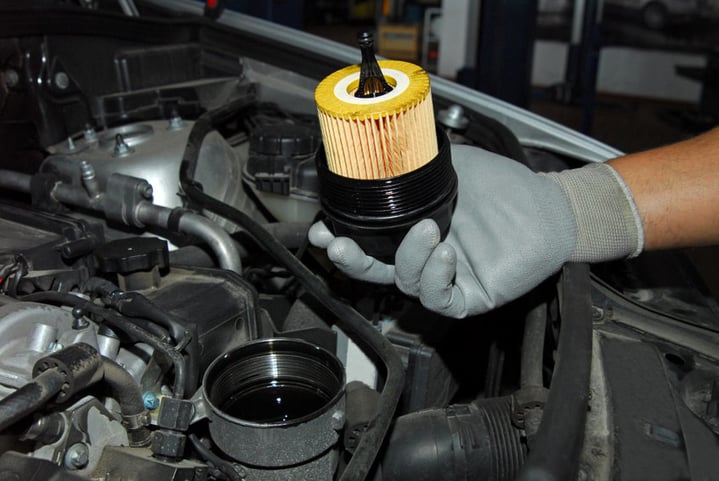Maximize Your Cars and truck'S Performance With Routine Oil Adjustments
Preserving your vehicle's performance is a complex undertaking, with regular oil modifications standing out as an essential element. Fresh engine oil plays a critical duty in making certain optimum lubrication, minimizing rubbing, and protecting against wear on important elements. Lots of vehicle drivers overlook the signs that suggest a requirement for an oil modification, possibly endangering their car's longevity.
Significance of Regular Oil Modifications
While many cars and truck proprietors may overlook the value of routine oil modifications, neglecting this essential upkeep task can lead to severe consequences for engine performance and longevity. Engine oil plays a vital duty in oiling relocating components, minimizing friction, and avoiding overheating. Over time, oil degrades due to direct exposure to heat and pollutants, which diminishes its effectiveness.
Failing to transform the oil regularly can cause the build-up of sludge and debris, which can obstruct essential engine components and lead to enhanced wear. This not just endangers engine effectiveness however can likewise result in pricey repair services and even total engine failing. In addition, old oil sheds its ability to counteract acids generated during combustion, which can bring about corrosion and additional damages.
In addition, many automobile makers suggest certain oil modification intervals, commonly based on mileage or time. In summary, routine oil adjustments are not merely a pointer; they are an important element of liable vehicle maintenance that secures the engine and boosts overall performance.
Benefits of Fresh Oil
Altering to fresh oil supplies numerous benefits that directly improve engine efficiency and efficiency. One of the primary advantages of fresh oil is its remarkable lubricating residential or commercial properties. New oil minimizes rubbing in between engine parts, which not just decreases wear but also adds to smoother operation. This results in enhanced fuel effectiveness, as the engine does not need to work as hard to get rid of resistance.
Additionally, fresh oil effectively cleans the engine by putting on hold impurities and stopping sludge build-up. Over time, oil becomes infected with dust, steel particles, and burning byproducts. Consistently replacing oil makes sure that these hazardous materials are removed, advertising a cleaner and healthier engine setting.
In addition, fresh oil help in optimum temperature level law. It dissipates warm extra effectively, stopping overheating and possible damages to engine components. This is particularly important throughout peak performance situations, where warmth accumulation can impair engine capability.
Indicators Your Oil Demands Changing
Engine oil is the lifeline of your car, and identifying when it needs transforming is essential for maintaining ideal performance - Oil Change Lockhart. A number of indications suggest that it's time for an oil modification, and staying vigilant can avoid engine damage and costly repair services
First, inspect the color and uniformity of the oil. Fresh oil is commonly brownish-yellow and smooth, while old oil may show up dark and gritty, suggesting contamination and minimized efficiency. A modification in viscosity can also signify that the oil has damaged down and is no much longer appropriately lubing engine parts.

One more caution indicator is the oil modification light on your dashboard. This alert acts as a reminder that the oil has reached its lifespan or that there is a hidden problem needing focus. In addition, uncommon engine noises, such as knocking or ticking, may recommend inadequate lubrication because of degraded oil.
Last but not least, if you observe oil spots or pools under your automobile, it may indicate a leakage that necessitates immediate examination and feasible oil change. Listening to these indicators will guarantee your engine runs smoothly and successfully.
Picking the Right Oil
Selecting the suitable oil for your automobile is essential for guaranteeing ideal efficiency and durability. Engine oils are available in various types and viscosities, each formulated to meet specific requirements. The first consideration should be the manufacturer's recommendations, which can generally be discovered in the owner's manual. This guidance will route you towards the right viscosity find here grade, such as 5W-30 or 10W-40, which indicates the oil's density at various temperature levels.
Following, think about the type of oil: conventional, synthetic, or a mix. Standard oil is stemmed from crude oil and appropriates for older vehicles, while artificial oil uses exceptional defense and efficiency for modern engines, specifically under extreme problems. Artificial blends combine the advantages of both and are commonly an economical option.
In addition, search for oils that my company fulfill market requirements, such as API (American Oil Institute) or ACEA (Organization des Constructeurs Européens d'Automobiles) accreditations. These indications guarantee that the oil has actually been checked for quality and performance. Eventually, choosing the right oil not only enhances engine efficiency yet likewise adds to the total health and wellness of your automobile, leading the way for smoother home driving experiences.
Oil Adjustment Frequency Recommendations

Elements affecting oil change regularity consist of driving problems, such as stop-and-go website traffic, extreme temperature levels, and hauling hefty tons. Under extreme conditions, it may be prudent to transform the oil much more regularly to stop engine wear. Additionally, some contemporary vehicles come outfitted with oil life monitoring systems that provide personalized referrals based on driving habits, which can even more optimize the oil change schedule.
It's critical to consult your owner's manual for specific recommendations customized to your lorry. Sticking to these guidelines not just protects engine health and wellness yet also improves gas performance and reduces discharges. To conclude, routine oil adjustments, timed suitably based upon various elements, are an essential element of vehicle maintenance that can substantially influence efficiency and longevity.
Conclusion
